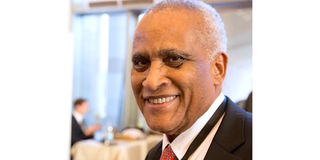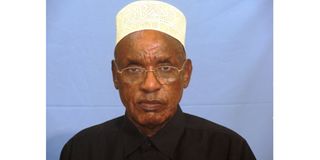Prime
Biteko and the history of Deputy Prime Ministers in Tanzania

Deputy Prime Minister, Dr Doto Biteko. PHOTO | FILE
What you need to know:
- At only 45 years of age, Dr Biteko represents a new generation of leaders who can bring fresh perspectives and innovative ideas to the table.
Dar es Salaam. The appointment of Dr Doto Biteko as Deputy Prime Minister has become a headline act of the recent cabinet shake-up marking only the third time in the country’s history that someone has held this prestigious position since gaining independence.
The first person to hold the position was politician and diplomat Salim Ahmed Salim from 1986 to 1989, and the late veteran opposition politician Augustino Mrema held the position from 1992 to 1994.
As per the official statement released by Chief Secretary Dr Moses Kusiluka yesterday, it was emphasized that Dr Biteko, formerly the Minister of Minerals, will now become the minister for Energy. This role was previously held by January Makamba, who has now been appointed as the Minister of Foreign Affairs and East African Cooperation.
Dr Biteko, an experienced leader and a figure of prominence in Tanzania’s political milieu, now finds himself at the helm of a challenging but rewarding task -- the coordination of government activities. Coordination, in this context, is the key.
It involves harmonizing the efforts of various ministries and departments, ensuring that policies are implemented efficiently and that the government’s agenda is pursued with vigour.
An expert and consultant in social and economic policy development Mr Bubelwa Kaiza said since the position of Deputy Prime Minister is not constitutionally recognized, the decisions of the President to issue such appointment can be influenced by political reasons.
He mentioned that starting the first deputy, Mr Salim, who performed well in this role during the 1980s in business, diplomacy, and policy, influenced the subsequent appointment by President Hassan Ali Mwinyi to continue that tradition.
”However, it had been vacant for a long time since Mrema ended his tenure in 1994, and now, in my opinion, it could be for the same political reasons,” he said.
”This could also be interpreted as political preparations for the 2025 general elections as the Lake Zone regions have a significant number of voters, so it could be a strategic move towards that,” said Buberwa.
The role of Deputy Prime Minister is multifaceted, requiring an individual with political acumen and a deep understanding of the intricate workings of the government.
While the Constitution does not recognise the position of Deputy Prime Minister, Section 36 (1) gives the President the power to create or eliminate any position within the government. The section reads, “…subject to the other provisions of this Constitution and of any other law, the President shall have authority to constitute and to abolish any office in the service of the Government of the United Republic”.
Dr Biteko’s appointment also signifies the President’s determination to bring coherence to government activities, ensuring they align with the nation’s long-term goals and ambitions.
At only 45 years of age, Dr Biteko represents a new generation of leaders who can bring fresh perspectives and innovative ideas to the table.
His journey, from a humble beginning as a teacher for eleven years to now holding a position of immense responsibility, is an inspiration to all Tanzanians.
His political journey has seen him rise from a local constituency leader to one of the country’s most respected lawmakers.
Dr Biteko was first elected as a Member of Parliament in 2015 for Bukombe.
His commitment and dedication were quickly recognized, leading to his appointment as the Deputy Minister for Minerals, a role he held from 2017 to 2019.S
ubsequently, in 2019, he was elevated to the position of Minister, a role he served until Wednesday’s appointment.
Dr Salim Ahmed Salim was Deputy Prime Minister from 1986 to 1989, having been appointed to the post by President Ali Hassan Mwinyi. Dr Salim was also Defence minister during that time

The late Augustine Mrema also served as Deputy Prime Minister under President Ali Hassan Mwinyi from 1992 to 1994. He held the post while also serving as Home Affairs minister.





